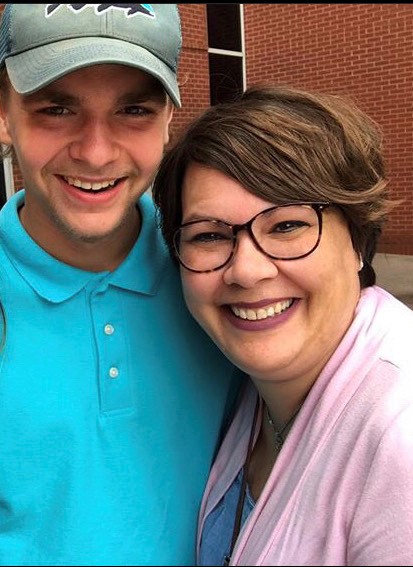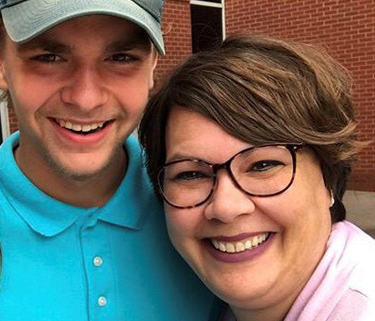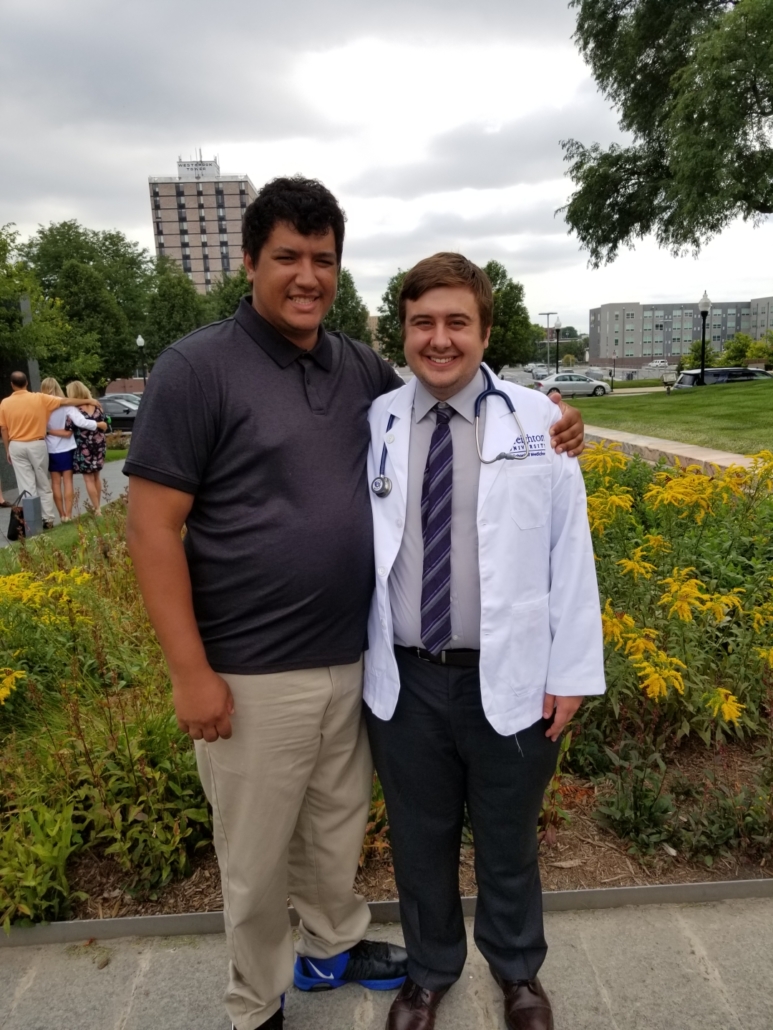During a Crisis and Beyond, Congress Must Provide Paid Leave to Caregivers of People With Disabilities
By Peter Berns and Debra L. Ness
Before this pandemic, far too many people with disabilities and their families were on shaky financial ground, with little to no savings for a crisis. Workers with disabilities and workers whose families include people with disabilities were fearful of the consequences to their job if they faced a significant illness. Let’s be honest – before COVID-19 became a constant in our lives, disability equaled inequity in many aspects of American life.
And here we are, several months into a worldwide pandemic, yet Congress has failed to address the critical needs of people with disabilities and their families, especially when it comes to access to paid leave.
Access to paid sick days and paid leave are key to our country’s health and well-being, especially during this time of crisis. The coronavirus relief packages that have been signed into law fail to provide paid leave for millions of family caregivers of people with disabilities. Many employers, if they provide time off, will not be eligible for the tax credits to cover the costs of paid sick days and expansions to the Family and Medical Leave Act. As disability service providers have been ordered by government agencies to stop some services, families are scrambling to provide care to their family members with disabilities, often at the expense of their job.

Take Brandi Wetherald. Brandi’s 18-year-old son, Caiden, has disabilities – including autism and a chromosomal disorder. Brandi, a single mother, has always struggled to be there for Caiden without paid leave and has lost jobs because she has taken time off to be a caregiver and fight for her son.
“I was looking for better. I was looking for more understanding. I was looking for what would serve him best and people just weren’t getting it,” Brandi said.
In her early 40s, she had to drop out of college to make sure that Caiden was getting the support he needed, putting off her goal of furthering her education and opportunities. But in August 2019, she started taking classes again, and she and Caiden are hoping to graduate together next year.
Those plans feel like they’re slipping away. Caiden has lost almost all of the services he usually receives in school due to the disruption caused by this pandemic. The isolation and loss of routine is affecting Caiden’s mental health and Brandi is trying to keep both of them on track to graduate. But Brandi’s remaining paid sick time is in the negative. She had the flu last year and Caiden was hospitalized. And now she’s running out of vacation days. So while Brandi can work from home, she doesn’t have the time she needs to provide the supports that Caiden was getting in school to reach his goals and to be present for him.
“It is overwhelming,” said Brandi, adding that Caiden needs her now more than ever. “When you talk about kids who are isolated already and don’t have a large network of friends, they are even more isolated during this pandemic.” Brandi fears what’s next because she is unable to invest enough time in Caiden or her job. “It has been terrible because there have just been some days where I haven’t been able to get my work done and I worry about that,” she said.
This reality is all-too-familiar for people with disabilities and their families, who experience every day the hardship that can result from a lack of paid leave for caregivers. The fact is 1 in 4 adults in the United States lives with a disability. And more than 65 million people in the United States are providing care for family members who are ill, aged or living with a disability – including parents, grandparents, siblings and others.
Almost all caregivers for people with disabilities have had to go into work late, leave early, or take time off during the day to support their family members. Many have been forced to take a leave of absence, retire early, or give up work entirely to provide care. This is because only 19 percent of all workers have access to paid family leave through an employer. This imposes a huge economic burden on families: it’s estimated that workers lose $22.5 billion in wages annually when they have to take leave without pay to care for a family member, income they cannot afford to lose. And we can expect this to get worse as additional supports families rely on, such as day programs, daycare centers, and school services, face closures due to outbreaks.
The struggles of families like Brandi and Caiden were the focus of two hearings in the U.S. House of Representatives on paid family and medical leave earlier this year. And Congress did pass limited provisions in March, providing some caregivers with 10 days of emergency paid sick time and an additional 10 weeks of paid family leave.
But they didn’t go far enough. Congress didn’t cover millions of workers like Brandi. The new emergency law left out workers for employers with more than 500 employees and limits access to paid family leave to only parents whose child’s school or child care is closed. This emergency paid leave needs to be expanded to cover all family caregivers and their reasons for leave. And then we have to go further – we need to ensure that family caregivers are protected by a permanent, comprehensive, inclusive, national paid family and medical leave program that would support all of our families, including families with members with disabilities. It would guarantee that workers are not just entitled to time, but that they have the income and job security needed to take that time. So that Brandi can work and be there to support Caiden when he needs her. “I owe it to him. He’s my purpose,” said Brandi.
By helping caregivers stay in the workforce and improve financial stability, paid leave helps businesses reduce the high costs of turnover and supports the economy in our local communities. The evidence is overwhelming that paid leave is not just good for families, it also benefits businesses and our economy.
It’s past time for Congress to prioritize the needs of the people with disabilities and their families—both in emergency legislation in response to the pandemic and in a permanent, national solution. Brandi, Caiden, and millions of other Americans need the stability and security of a system set up to ensure that all families and caregivers have the ability to care for themselves and loved ones without risking their job, their health, or their family’s security.
Peter Berns is the Chief Executive Officer of The Arc, the world’s largest community-based organization of and for people with intellectual and developmental disabilities (I/DD), with 600 state and local chapters across the country.
Debra L. Ness is president of the National Partnership for Women & Families, a nonprofit, nonpartisan organization that works to achieve equality for all women.

















